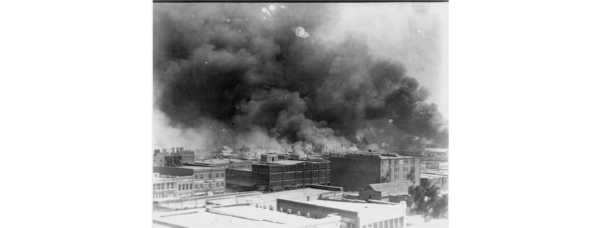Black Small business House owners Say They Are Remaining Shut Out of Black Wall Road Revitalization 100 Many years Just after Tulsa Race Massacre
Amid the revitalization of the organization districts in Tulsa, Oklahoma, Black business owners say they are remaining shut out of buying financial loans, tax incentives and house in the most fascinating regions 100 many years following the Tulsa Race Massacre.
About $42 million worthy of of tax incentives and financial loans intended to fund development in Tulsa’s historic Greenwood district has “largely benefited white-owned corporations that gained the bulk of contracts to establish worthwhile parcels closest to downtown,” The Washington Write-up chronicled in a current report.

Under Oklahoma regulation, the distribution of these incentives and financial loans is governed by a race-blind method. City officials have only recently turned their focus to racial disparities in home ownership in the district. Though officials system to make extra land available for redevelopment, the Black business people have previously been shut out of the most appealing areas of Greenwood.
A century right after the 1921 massacre, a solitary a single-block professional extend south of the interstate continues to be Black-owned in a local community in which Black People as soon as thrived in an epicenter of Black enterprise and lifestyle.
The violence commenced a century back when a Black teen was accused of assaulting a white girl in an elevator. When a group of Black guys showed up at the courthouse to defend the teenager, who was barricaded within the creating with the sheriff, a battle ensued with a mob of white males, and the melee turned a conflagration of violence that carried to the Greenwood district.
Around an 18-hour time period in 1921 amongst Could 31 and June 1, white mobs attacked, burned and looted the flourishing business enterprise district that experienced come to be acknowledged as Black Wall Street. Hundreds of survivors ended up remaining homeless, and experiences of what occurred have been mostly silenced in media reviews.
At minimum 300 individuals ended up killed and extra than 800 had been injured. Extra than 1,200 homes and 60 enterprises ended up destroyed.
No Black house owners received payment, and city and condition officials did not dedicate revenue to rebuilding the neighborhood in the aftermath of the attack.
Tulsa indigenous Male Troupe, who owns a coffee store in the Greenwood district, expressed stress about the disparities in land and assets possession in the area.
“It’s really hard to tummy the notion that a museum and tourism will fix the worries of systemic racism. I came to take again what’s rightfully ours,” the 54-year-previous Troupe explained to the Put up. “Who owns in there? It is not us. The only point we have are houses. But large industrial structures, lands zoned for commercial advancement? We really don’t have it.”
Troupe returned to the town right after a vocation in sports activities consulting.
The Tulsa Enhancement Authority and the state college method have a significant part of the 35 blocks of properties that comprise the Greenwood district.
By the revitalization approach more than the earlier 10 yrs, the Tulsa Growth Authority has bought a half-dozen prime parcels of land to private builders.
Jot Hartley, general counsel for the Tulsa Advancement Authority and one of many figures who spoke to the Post about the revitalization, stated bias is not what retains Black business owners from accessing the incentives offered by the city.
“Some of these tasks have been relatively large and necessary cash that is not ordinarily offered to just any person unless of course they are now in the enterprise of developing large jobs,” Hartley explained.
The authority explained it considers developers’ ties to the local community and working experience with financing but does not give thing to consider to a person’s race.
Metropolis officers have been resistant to phone calls for reparations for descendants of victims of the massacre. The Tulsa Development Authority responded to a lawsuit filed by a 105-calendar year-aged survivor and other descendants of massacre survivors seeking redress for the violence with a movement to dismiss.
Kian Kamas, Tulsa’s chief of economic development, stated the metropolis ideas to produce 55 extra acres on scaled-down parcels north of the interstate and will encourage actively amongst Black builders.
“There is a fervent motivation to ensuring that Black-owned companies have an chance to be a portion of that revitalization,” Kamas said.
Troupe said an economic stimulus offer should be made use of to allow for Black entreprenuers to rebuild Black Wall Street. Parcels north of the interstate really should be produced obtainable to Black organization homeowners “by deeding land, giving grants and presenting very low-interest loans so the atrocities of the previous could be addressed.”
“Historical Black Wall Street is absent. It’s lifeless,” he explained. “But its spirit can be revived.”







